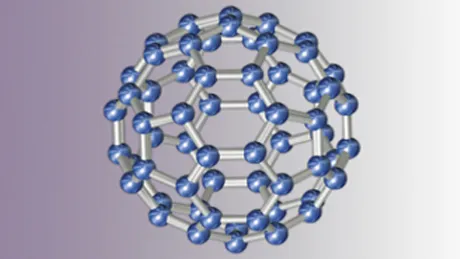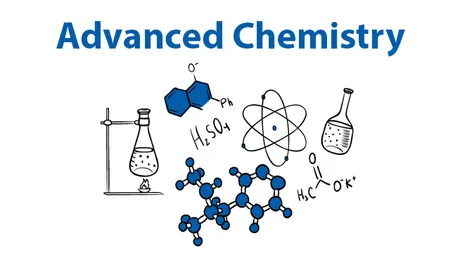
Biological Inorganic Chemistry 
This course provides an introduction to Biological Inorganic Chemistry, exploring the extraordinary important role of metal ions in biology, health, diseases and medicine. It covers the coordination chemistry of metal ions and their involvement in cellular and subcellular functions. It is suitable for MSc, MTech and MPharm students with prerequisites of Coordination Chemistry and Basic Bioinorganic Chemistry. The course provides skill training for Biological Inorganic Chemistry and is supported by BioTech, BioProcess and BioCatalyst industries. ▼
ADVERTISEMENT
Course Feature
![]() Cost:
Cost:
Free
![]() Provider:
Provider:
Swayam
![]() Certificate:
Certificate:
Paid Certification
![]() Language:
Language:
English
![]() Start Date:
Start Date:
24th Jul, 2022
Course Overview
❗The content presented here is sourced directly from Swayam platform. For comprehensive course details, including enrollment information, simply click on the 'Go to class' link on our website.
Updated in [May 25th, 2023]
This course, Biological Inorganic Chemistry, provides an overview of the extraordinary important role of metal ions in biology, health, diseases and medicine. It covers the inorganic aspects of life processes and biological processes from the viewpoint of the coordination chemistry of metal ions. The course is designed to provide a multidisciplinary approach to the study of metal ions in biological systems. It is intended for MSc, MTech and MPharm students and requires a basic understanding of coordination chemistry and bioinorganic chemistry. The course is beneficial for those interested in working in the BioTech, BioProcess and BioCatalyst industries.
[Applications]
This course in Biological Inorganic Chemistry provides students with an understanding of the extraordinary important role of metal ions in biology, health, diseases and medicine. It covers the inorganic aspects of life processes and biological processes from the viewpoint of the coordination chemistry of metal ions. Students will gain an appreciation of the multidisciplinary approach to the study of metal ions in biological systems. They will also gain an understanding of how selected metal ions are involved in cellular and subcellular functions.
Upon completion of this course, students can apply their knowledge to the biotechnology, bioprocess, and biocatalyst industries. They can also use their understanding of metal ions in biology to develop new treatments for diseases and illnesses. Additionally, students can use their knowledge to develop new methods of diagnosing and monitoring diseases.
[Career Paths]
1. Bioinorganic Chemist: Bioinorganic chemists are responsible for studying the role of metal ions in biological processes. They use their knowledge of inorganic chemistry to understand the coordination chemistry of metal ions and how they interact with biological systems. They also develop new methods and techniques to study the role of metal ions in biological processes. This field is rapidly growing and is expected to continue to grow in the future.
2. Bioinformatics Scientist: Bioinformatics scientists use their knowledge of inorganic chemistry and computer science to develop new methods and techniques to analyze and interpret biological data. They use their knowledge of inorganic chemistry to understand the coordination chemistry of metal ions and how they interact with biological systems. They also develop new algorithms and software to analyze and interpret biological data. This field is rapidly growing and is expected to continue to grow in the future.
3. Biochemist: Biochemists use their knowledge of inorganic chemistry to understand the coordination chemistry of metal ions and how they interact with biological systems. They also develop new methods and techniques to study the role of metal ions in biological processes. This field is rapidly growing and is expected to continue to grow in the future.
4. Pharmaceutical Chemist: Pharmaceutical chemists use their knowledge of inorganic chemistry to understand the coordination chemistry of metal ions and how they interact with biological systems. They also develop new methods and techniques to study the role of metal ions in drug development and drug delivery. This field is rapidly growing and is expected to continue to grow in the future.
[Education Paths]
1. Master of Science in Biological Inorganic Chemistry: This degree program focuses on the coordination chemistry of metal ions and their role in biological processes. Students will learn about the structure and function of metal ions in biological systems, as well as the principles of bioinorganic chemistry. This degree program is ideal for those interested in pursuing a career in biotechnology, bioprocessing, or biocatalysis. Developing trends in this field include the use of metal ions to develop new drugs and treatments, as well as the use of metal ions to improve the efficiency of bioprocessing.
2. Master of Science in Bioinformatics: This degree program focuses on the application of computer science and mathematics to the analysis of biological data. Students will learn about the principles of bioinformatics, as well as the use of computer algorithms and software to analyze and interpret biological data. This degree program is ideal for those interested in pursuing a career in biotechnology, bioprocessing, or biocatalysis. Developing trends in this field include the use of machine learning and artificial intelligence to analyze and interpret biological data.
3. Master of Science in Biochemistry: This degree program focuses on the chemical processes that occur in living organisms. Students will learn about the structure and function of proteins, enzymes, and other biomolecules, as well as the principles of biochemistry. This degree program is ideal for those interested in pursuing a career in biotechnology, bioprocessing, or biocatalysis. Developing trends in this field include the use of biochemistry to develop new drugs and treatments, as well as the use of biochemistry to improve the efficiency of bioprocessing.
4. Master of Science in Molecular Biology: This degree program focuses on the structure and function of genes and other molecules in living organisms. Students will learn about the principles of molecular biology, as well as the use of molecular techniques to study biological processes. This degree program is ideal for those interested in pursuing a career in biotechnology, bioprocessing, or biocatalysis. Developing trends in this field include the use of gene editing and gene therapy to develop new treatments, as well as the use of molecular techniques to improve the efficiency of bioprocessing.
Course Provider

Provider Swayam's Stats at AZClass
Discussion and Reviews
0.0 (Based on 0 reviews)
Explore Similar Online Courses

Make Great YouTube Thumbnails

Easy Animated Icons in Adobe After Effects

Python for Informatics: Exploring Information

Social Network Analysis

Introduction to Systematic Review and Meta-Analysis

The Analytics Edge

DCO042 - Python For Informatics

Causal Diagrams: Draw Your Assumptions Before Your Conclusions

Whole genome sequencing of bacterial genomes - tools and applications

General Chemistry: Concept Development and Application

Advanced Chemistry

Free Chemistry Tutorial - Chemistry 101 - Chemistry in Society
 Related Categories
Related Categories
 Popular Providers
Popular Providers
Quiz
 Submitted Sucessfully
Submitted Sucessfully
1. What is the intended audience for the course?
2. What are the prerequisites for the course?
3. Which industries are supported by the course?


Start your review of Biological Inorganic Chemistry